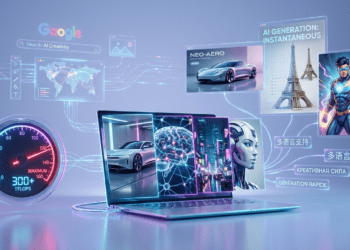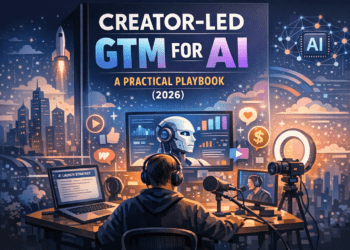The Next Chapter of AI Communication

Technology often evolves in sudden leaps. With artificial intelligence, these leaps can be dramatic. Now, Google’s latest innovation, Gemini’s Astra, has generated a new wave of excitement in the digital world. Its potential goes beyond mere novelty. Many see it as an important milestone in AI-driven communication tools.
In today’s ever-connected environment, people crave seamless collaboration. They also want practical, easy-to-use features that enhance creativity. As reported by The Verge, Google’s recent push with Gemini’s Astra brings live video screen sharing straight into the user’s hands. This move adds to a rapidly diversifying toolkit of AI services designed to bridge communication gaps. The rollout reveals Google’s vision for a future where technology not only serves but also anticipates user needs.
Early adopters already share screenshots and experiences. Their reactions suggest that Astra’s potential extends beyond real-time conversation. It’s not just another widget to facilitate face-to-face calls. Instead, it harnesses the power of artificial intelligence to interpret on-screen activity. Many industry experts see this as a game-changer. It opens doors for future innovations in remote learning, online collaboration, and interactive entertainment.
Gemini’s Astra may not be the first AI offering to tout advanced sharing functions. Yet, the scope of its capabilities reflects how seriously Google invests in next-level user experiences. Technical improvements, broader accessibility, and cutting-edge design converge here. For many, the next logical step is to see how quickly these features expand to a wider audience. Because in the fast-moving tech ecosystem, new tools can capture hearts and minds at record speed.
The Emergence of Gemini’s Astra
Gemini’s Astra did not appear overnight. It is the product of Google’s ongoing commitment to AI, advanced machine learning, and user-friendly design. Observers in the technology space noticed subtle hints of this evolution long before official announcements. Back when Google introduced AI-driven chat modules and voice assistants, whispers of more immersive communication features circulated. Many believed Google would soon unify multiple capabilities into a single, powerful suite.
That vision is now clearer. According to BleepingComputer, Gemini’s Astra is rolling out for select Android users. This limited release signals that Google wants real-world feedback before a massive global launch. By testing the waters in controlled settings, the company can refine the interface, iron out bugs, and address privacy concerns right at the onset.
How does Astra differ from previous attempts at AI integration? Historically, screen sharing often required a third-party application or an add-on service. Audio quality was sometimes poor, or the video feed lagged. With Astra, Google claims to have overcome many of these setbacks, delivering a seamless viewing experience that syncs voice, data, and visual cues in real time.
Gemini’s Astra also aims to enhance accessibility. By leveraging AI-driven features, users can receive on-screen prompts, real-time translations, or text-to-speech assistance. These elements help people of varying abilities, languages, or technical backgrounds. It’s not just a glimpse of what tomorrow’s tech might look like; it’s a testament to the inclusive possibilities AI can bring to public and private communication channels.
Key Features and Early Reception
One of Astra’s most talked-about highlights is its advanced camera overlay. During live video calls, you can overlay text, annotations, and even AI-powered suggestions onto your view. Need to highlight part of a presentation? Astra can help you circle or underline key details in an instant. Whether you’re demonstrating a new app or explaining a design mockup, the features feel intuitive and quick.
Voice recognition also takes center stage. Astra’s algorithm listens to conversations and creates real-time subtitles. This is potentially groundbreaking for users with hearing challenges or for teams that span multiple time zones. Imagine hosting a global conference call with participants who speak different languages. Astra’s built-in translator might lower language barriers, offering a more unified workflow.
Reviews, so far, are a mix of wonder and measured caution. Some testers praise the ease of accessing these options right from their phone’s native interface. Others remain skeptical about data usage, bandwidth requirements, or the system’s ability to handle large group calls without lag. Still, the excitement is palpable. The smoothness of transitions, the crisp quality of shared screens, and the responsiveness of AI-driven suggestions all point to a polished product.
As noted by Tech in Asia, the buzz around Astra has drawn significant attention from startups and established enterprises alike. Everyone is curious how Google will monetize, expand, and evolve these services. The appetite for AI-based collaboration appears insatiable, and Astra’s strong first impression feeds growing demand.
Live Video Screen Sharing: A Deep Dive

Screen sharing might seem like a routine feature in modern communication apps. Yet, Gemini’s Astra refines it with AI enhancements that shift the entire dynamic. When you share your screen, Astra can detect different types of content. It identifies text fields, hyperlinks, and even UI elements in real time. This means you can do more than just show your screen. You can transform a static display into an interactive environment.
If you’re demoing a new website, Astra can let viewers click through embedded links. You can also highlight portions of the interface to guide user attention. This is beneficial for business presentations, software tutorials, and classroom demonstrations. At a moment’s notice, your co-presenters or audience can annotate live, mark queries, or request clarifications.
Privacy remains crucial, of course. That is why Google has implemented layered permissions. Users can decide exactly which apps or screens to share. Sensitive notifications can be temporarily blocked. Important data is not exposed while toggling between tasks. This granular control mitigates the risk of accidentally sharing personal content, which is a common worry.
Beyond the professional arena, these capabilities could revolutionize social interactions. Imagine co-watching a video, analyzing a photo album, or browsing an e-commerce site with friends in different locations. The possibilities for real-time entertainment or collaborative shopping experiences are expansive. With Gemini’s Astra, live video screen sharing becomes more than a feature. It is an immersive, AI-powered ecosystem that adapts to every scenario.
Impact on User Privacy and Security
Any discussion about real-time screen sharing and AI integration inevitably leads to questions on privacy. Users want to know how their data is stored, processed, and protected. In the past, platforms have faced criticism for not fully disclosing how they handle user content during screen shares. Google, aiming to address potential backlash head-on, promises robust safeguards with Gemini’s Astra.
Encryption is a cornerstone. According to Google’s public statements, Astra uses end-to-end encryption for video and screen data. This helps keep private calls private. During real-time AI analysis—like transcription or object detection—data is reportedly processed locally as much as possible. The intention is to minimize the exposure of personal data to external servers.
Still, skepticism remains. Some analysts believe that advanced AI could inadvertently record or store snippets of conversations in the cloud. Google counters that the system only retains data needed to maintain quality. Everything else, they insist, is discarded or anonymized. However, the complexities of global data laws mean transparency is key. Users are encouraged to read the updated privacy terms and to keep an eye on any additional clarifications Google might release.
One positive outcome of these discussions is the broader conversation around user agency. People are growing more aware of what data they share and how it is used. Astra’s success will likely hinge on Google’s ability to ensure robust security measures that don’t stifle the dynamic nature of the service. In an era where trust can make or break a product, privacy safeguards are as indispensable as the AI features themselves.
Potential Use Cases Across Industries
Gemini’s Astra is not confined to casual video calls. Its adaptive AI design opens doors in education, healthcare, design, marketing, and beyond. Virtual classrooms stand to benefit greatly. Educators can share lesson materials, highlight specific sections of a document, and interact with student questions in real time. Automatic transcriptions mean students who struggle with note-taking can review accurate text versions of lectures later.
Healthcare professionals might explore its potential for telehealth consultations. A doctor could share images, charts, or test results during a patient video call, pointing out crucial details without risking misunderstandings. The built-in translator could facilitate cross-lingual medical discussions, which are often prone to errors if handled by conventional translation software.
Creative industries also see promise. Design teams can collaborate on graphics or videos, editing them in real time and receiving immediate AI suggestions. Marketing agencies can pitch ideas to clients with an interactive approach, dropping suggestions right onto the shared screen. Meanwhile, financial analysts could benefit from a simplified way to review spreadsheets collaboratively.
Even emerging sectors like esports and online communities are piqued. Gamers might host live streams with integrated commentary, using AI-driven overlays that highlight strategies or track in-game statistics. Forum moderators can jump into a live session with users to resolve issues, navigating the interface as a group.
These varied scenarios illustrate the true breadth of Astra’s capabilities. By blending advanced screen sharing with AI-driven insights, Gemini’s Astra has the potential to reshape collaboration across countless fields.
The Future of AI-Powered Collaboration
Few innovations in recent memory have captured the tech world’s imagination quite like AI. Gemini’s Astra is poised to be a catalyst for new ways of working, learning, and socializing. While earlier AI solutions focused on data analytics or voice assistants, Astra brings the technology front and center in real-time human interactions. The synergy of shared visuals, instant translations, and guided annotations can break down communication barriers that once seemed immovable.
What does this mean for broader tech trends? We could see a rapid shift toward integrated platforms that combine chat, video, file sharing, and AI insights under one umbrella. The lines between these services might blur, providing users with a single, cohesive environment. This unified approach could reduce friction, save time, and spark creativity.
Yet, challenges persist. Stable internet connectivity is crucial for uninterrupted AI-driven screen sharing. Geographic disparities in broadband access remain. Moreover, some are concerned that the increasing reliance on AI might marginalize those who lack digital literacy or resources. If Astra’s features become the norm, how do we ensure that everyone can participate without feeling left behind?
Nevertheless, the potential upside is huge. Future updates could integrate advanced gesture recognition or eye-tracking. These additions would make remote meetings more immersive. As the technology evolves, the AI might do more than react to user commands—it could predict them. In time, such predictive algorithms might streamline tasks, further dissolving the boundaries between users, their screens, and each other.
Conclusion and Outlook

Google’s Gemini’s Astra is more than just a new product. It marks a transformative moment in AI-driven communication. Early testers praise the seamless screen sharing and the dynamic overlays, while businesses see fresh avenues for collaboration. Educators, healthcare providers, and creative professionals all envision specialized uses. Though concerns around privacy, accessibility, and infrastructure need addressing, these do not overshadow the possibilities.
The rollout strategy, which focuses on a small user base before scaling up, illustrates Google’s dedication to quality. If initial feedback remains positive and security remains airtight, we can expect a rapid global expansion. Additional features, like deeper integration with existing Google services or more advanced real-time translations, are likely on the horizon. Astra could become an essential tool for remote work, online entertainment, and blended learning experiences.
Keep an eye on potential partnerships. Large organizations may integrate Astra’s features directly into their products. Smaller startups might build complementary tools that expand what Astra can do. The ripple effects from one AI innovation can spark an entire ecosystem of related technologies.
In a landscape where quick communication is prized, Astra offers a glimpse of what the near future could look like: a place where technology feels almost invisible, simply facilitating natural interaction. Whether you’re hosting an international conference call or catching up with a friend, the boundaries of real-time communication might soon be a thing of the past. Gemini’s Astra paves the way.










